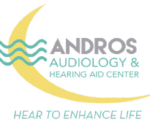Hearing FAQs
How long do hearing aids last?
Hearing aids have an average lifespan of 3-7 years. They can last you for longer if you take good care of them and bring them in for regular maintenance checks. However, many patients like to upgrade their hearing aids around the 3-5-year mark to take advantage of new technology.
Are hearing aids waterproof?
No, although hearing aids are incredibly durable, they are not waterproof. You should never wear your hearing aids in the shower or when swimming. Hearing aids are water resistant though and can withstand everyday wear and tear, such as sweat or a little rain. Just be sure to wipe your hearing aids with a dry cloth to ensure they aren’t wet.
Will tinnitus go away on its own?
Depending on how severe your tinnitus is, it may go away on its own. If you only experience ringing in the ears on an occasional basis and it does not affect your quality of life, then no further treatment should be necessary. If you experience frequent, loud tinnitus, then you should contact us for an appointment.
Are there any other cures for hearing loss?
Unfortunately there is no cure for hearing loss. Sensorineural hearing loss, the most common type, is irreversible. Hearing aids are a great management option as they will help you hear better and with clarity. It’s best to manage the signs of hearing loss sooner rather than later to ensure you don’t lose any speech comprehension and you can adjust easier.
I think my child may have hearing loss, what should I do?
If you suspect your child has hearing loss, you should bring them in for a hearing test immediately. Your child’s hearing plays a crucial role in their social, emotional, and cognitive development. Our audiologists can test your child’s hearing and guide you towards a solution.
How is hearing loss connected to my brain health?
The brain relies on sound stimulation to remain active and to understand your surroundings. Hearing loss can make the brain have to work harder by forcing it to strain to hear and fill in the gaps. Over time this can lead to brain fatigue and forgetfulness. If you have hearing loss, it’s crucial to wear hearing aids so you don’t lose any cognitive function.


